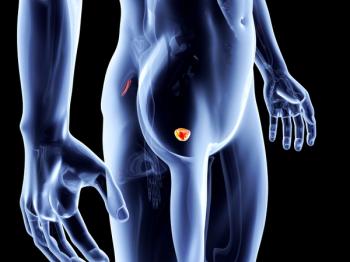
Crenigacestat Sees Little Clinical Activity at Recommended Phase 1 Dose in R/R T-ALL/T-LBL
For adult patients with relapsed or refractory T-cell acute lymphoblastic leukemia/T-cell lymphoblastic lymphoma, a phase 1 clinical trial revealed that crenigacestat (LY3039478) demonstrated little clinical activity at the recommended dose.
For adult patients with relapsed or refractory T-cell acute lymphoblastic leukemia (T-ALL)/T-cell lymphoblastic lymphoma (T-LBL), phase 1 trial results published in Cancer revealed that crenigacestat (LY3039478) demonstrated little clinical activity at the recommended dose.
The study also went on to suggest that the clinical development of crenigacestat for these patient populations may have been limited by gastrointestinal toxicities.
“The limited efficacy of crenigacestat in this study could be due to several reasons, including dosing interruptions due to gastrointestinal toxicities and less dependence of the disease on the Notch pathway after multiple relapses,” the authors explained.
In this multicenter, nonrandomized, open-label, dose-escalation, phase 1 study in adult patients with relapsed or refractory T-ALL/T-LBL, participants received crenigacestat orally 3 times per week plus 24 mg of dexamethasone (Ozurdex) twice daily on days 1 to 5 every other week in a 28-day cycle. The starting dose of crenigacestat was 50 mg, and dose escalation was performed with a modified 3+3 scheme for the estimation of dose-limiting toxicity at the recommended dose level.
Thirty-six patients with T-ALL (n = 31 [86.1%]) or T-LBL (n = 5 [13.9%]) were treated with the crenigacestat-dexamethasone combination. In total, 6 patients experienced dose-limiting toxicities, including 2 of 12 (16.7%) in the 75-mg cohort (grade 4 gastrointestinal hemorrhage and grade 3 nausea, vomiting, and diarrhea), 1 of 15 (6.7%) in the 100-mg cohort (grade 3 diarrhea), and 3 of 3 (100%) in the 125-mg cohort (grade 3 diarrhea, nausea, and vomiting). Moreover, 28 patients (77.8%) experienced 1 or more treatment-emergent adverse events (AEs) related to the study treatment.
The maximum tolerated dose was 75 mg of crenigacestat plus 24 mg of dexamethasone daily on days 1 to 5. Based on this, the recommended phase 2 dose of crenigacestat for patients with T-ALL/T-LBL is 75 mg 3 times per week in combination with dexamethasone.
“The recommended dose in this study is higher than the established dose for solid tumors (50 mg 3 times per week),” the authors noted. “It was hoped that the combination with steroids would improve the tolerance for crenigacestat treatment; however, gastrointestinal toxicities such as diarrhea and colitis persisted.”
The best overall response was a confirmed response, with 1 patient (2.8%) having a duration of response of 10.51 months. Further, 6 patients (16.7%) achieved stable disease, and 12 patients (33.3%) experienced progressive disease. The remaining 17 patients (47.2%) were not evaluable. The median event-free survival was 1.18 months (95% CI, 0.76-2.14 months) among all dose groups.
Plasma amyloid β (Aβ) levels were also used as biomarkers to determine the pharmacodynamic effects of crenigacestat in the study participants. The average maximal plasma Aβ inhibition on day 1 was found to have increased from 66% after 50 mg of crenigacestat to 87% after 100 to 125 mg of crenigacestat.
“Future trials to explore crenigacestat in combination with targeted agents and chemotherapy will need to focus on less advanced patients and possibly a dose even lower than the phase 2 dose identified in the current trial,” the authors wrote. “In addition, dose-proportionate downregulation of Notch-targeted genes has been seen, and this supports the clinical [pharmacodynamic] effect of crenigacestat.”
“In addition, further work is needed to study the effect of the combination of crenigacestat and dexamethasone on stem cell renewal and minimum residual disease eradication,” added the authors. “However, this conclusion is outside the scope of this study.”
Reference:
Borthakur G, Martinelli G, Raffoux E, et al. Phase 1 Study to Evaluate Crenigacestat (LY3039478) in Combination With Dexamethasone in Patients With T-Cell Acute Lymphoblastic Leukemia and Lymphoma. Cancer. doi: 10.1002/cncr.33188
Newsletter
Stay up to date on recent advances in the multidisciplinary approach to cancer.













































